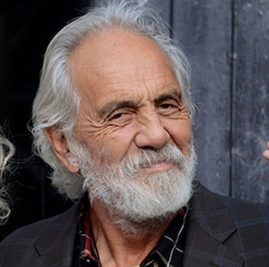CBD falls into a gray area. Laws surrounding marijuana, hemp, and their related derivatives are constantly changing. In many states, marijuana use requires a medical marijuana card which counts as a prescription. In more than a dozen states, marijuana can be used recreationally.
In a few states, CBD is technically outright illegal. It’s always a little spotty. But in most cases, CBD can be purchased and used without a prescription.
CBD Basics
CBD, or cannabidiol, is a derivative of the cannabis plant. Cannabidiol is a non-intoxicating compound that your body uses to power its endocannabinoid system. The oil is naturally extracted from the plant using a carbon chamber, similar to the way that roses might be processed for rose essential oil.
CBD can be extracted on its own, called CBD isolate. It can also be extracted in spectrums. Spectrums refer to the amount of other compounds from the plant that are contained in the resulting oil. There are broad spectrum and full spectrum forms of CBD, each providing additional nutrients and aromatic compounds from the plant.
What Makes CBD Different From Marijuana?
CBD is different from marijuana in the same way that barley is different from beer. They’re both components of an intoxicating agent, but they’re not going to intoxicate you. THC is like the ethanol of the marijuana plant. CBD or low THC hemp plants are a lot like non-alcoholic beer.
Anyone can buy barley from the store, but you need to purchase alcohol in accordance with the law. Anyone can purchase CBD, but you can only purchase THC containing products in accordance with the law. THC requires a prescription in most states. Some states outright forbid it. Some states don’t regulate it at all outside of the fact that it can only be purchased by adults. (Check your local laws for more information.)
Even though CBD and THC are completely different things, some states, like South Dakota and Idaho, have still outright banned non-FDA approved CBD products.
Doesn’t Full-Spectrum CBD Have a Little THC in it, Though?
Yes, sure does. Full spectrum CBD contains everything that the hemp plant contains, and what can be considered a hemp plant is regulated. Hemp plants are cannabis plants, make no mistake. You cannot fully breed all of the THC out of cannabis plants, so laws were made to declare an upper limit to make hemp legal to grow and produce for textiles, rope, paper, biofuel, and even lotion.
A hemp plant is any strain or breed of cannabis plant that contains no more than 0.3% of THC by dry weight. Since full spectrum CBD is the concentrated oil of everything the hemp plant has to offer, it will also contain a maximum of 0.3% THC.
So, why don’t you get high? The answer is simple. It’s the same reason you don’t get drunk on non-alcoholic beer, which still contains up to 0.5% alcohol by volume. There simply isn’t enough THC to produce any sort of effect.
The only thing you might want to be cautious about is drug screening. There isn’t enough THC to alter your mind, but if you use full spectrum CBD every day, you may store remnants of it in your body fat.
Large concentrations of residual THC may show up as a false positive on a drug screening that checks for marijuana use, so this is something you’ll want to keep in mind before you start using a full spectrum tincture. Use broad spectrum CBD if you have any concerns about possible ramifications.
What is CBD Oil Used For?
CBD oil positively impacts your body holistically. Your endocannabinoid system is responsible for supporting many vital processes in your body like mood, immune function, sleep cycle, digestion and appetite, stress and tension, and even how comfortable or uncomfortable you feel.
When you take full spectrum CBD oil, you’re supplying your endocannabinoid system with the fuel it needs to do a great job at naturally balancing your body.
CBD Oil’s come in many different formulas, forms, and concentrations, but CBD oils that are full spectrum nano-CBD are known for the greatest potential benefits and the highest possible absorption.
Other Forms of CBD
Although CBD tinctures are the most popular and most bioavailable form of CBD, CBD comes in other forms. Each form has its own practical application.
Nano-CBD tinctures will always be the most bioavailable and fastest acting form of CBD, but softgels, gummies, and CBD topicals all have an important role in your wellness routine.
CBD Softgels
CBD softgels are natural gelatin capsules filled with CBD in pre-measured doses. Capsules, like every supplement you take, are subject to something called the first pass effect. They go through your digestive system first, and are broken down along the way. They’re less potent and effective when they finally reach your endocannabinoid system.
If you don’t have a specific wellness concern and are using CBD as a general wellness aid, softgels will probably work well for you. They’re convenient to travel with and much easier to use than drops in a glass bottle. Especially if you don’t like the way CBD tastes, softgels will allow you to avoid the flavor while still enjoying the benefits.
CBD Gummies
CBD gummies are similar to CBD softgels. They’re a valuable alternative to capsules for people who have difficulty swallowing pills. They’re also an easy way to get children to take CBD. Kids might turn their noses up at tinctures and refuse to take softgels. If you hand them a gummy, they’ll likely take it without a second thought — just make sure to adjust the dosing for their smaller bodies.
CBD Salves
CBD salves, balms, and gels are used topically to treat pain. If you have achy or sore muscles, apply a topical to the area. Use that topical in conjunction with a CBD tincture. The topical will work to address the pain from the outside while the tincture will get to work on the inside, promoting your body’s ability to manage its own response to that discomfort.
The Takeaway
CBD oil doesn’t require a prescription to use as long as the THC content is below 0.3%. Most CBD manufacturers work to keep their products below that threshold because they don’t want to be prohibited by the need for a prescription. Any full spectrum tinctures from non-hemp plants may require a prescription for use in most states. If this is the case, the product will be labeled accordingly.
Sources:
https://www.legalreader.com/is-cbd-legal-in-2020/
https://www.healthline.com/health/hemp-vs-marijuana
https://www.verywellhealth.com/cbd-oil-and-failing-drug-tests-4580277



